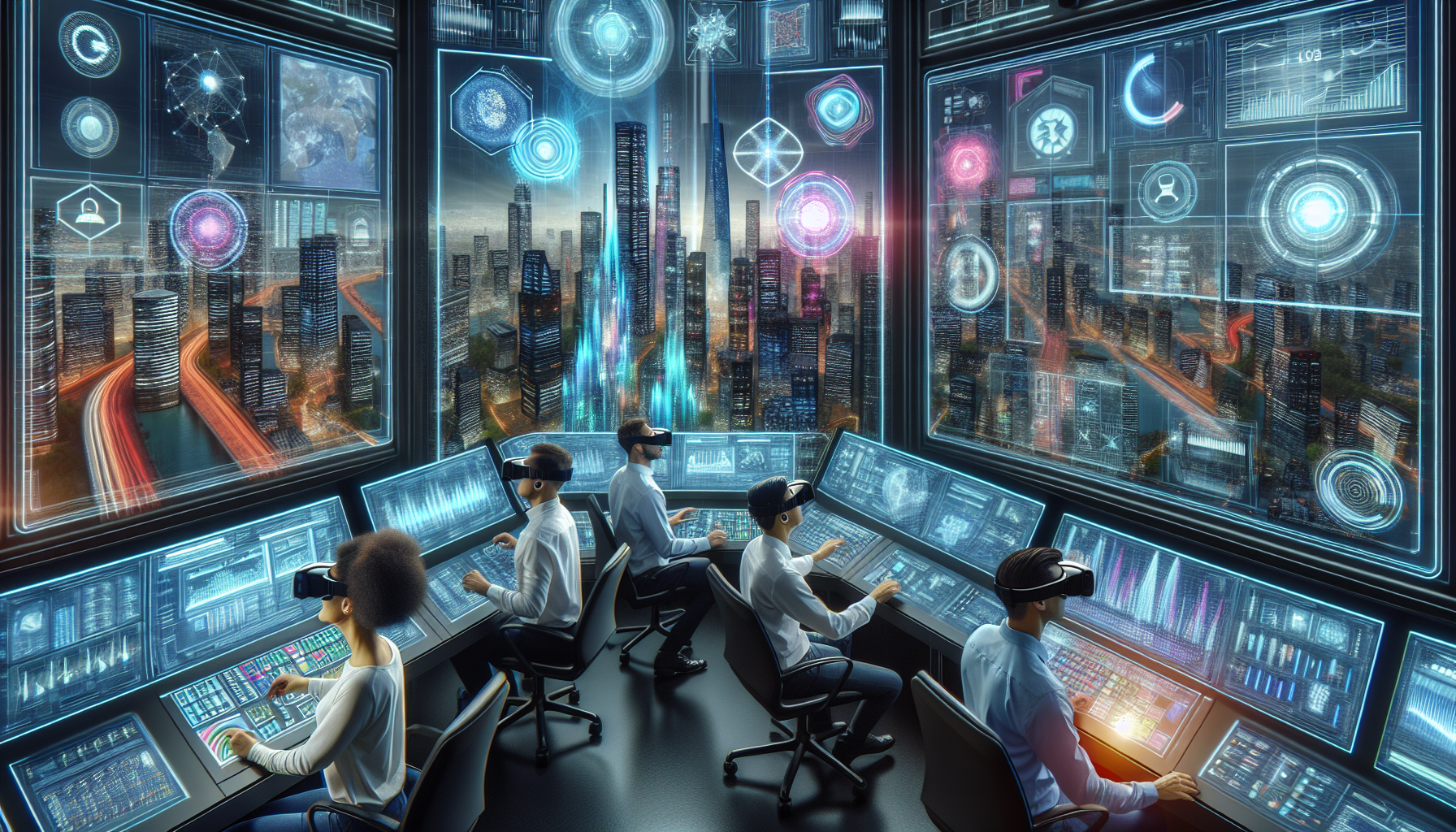
tl;dr
Malaysia launches a metaverse-based Intelligence Operations Centre (IOC) in Selangor, leveraging AI, IoT, and 3D visualization to transform infrastructure management, with implications for smart cities, crisis response, and healthcare.
**Malaysia’s Metaverse-Based Intelligence Operations Centre Pioneers Smart Infrastructure Management**
In a bold move to harness emerging technologies, Malaysia has unveiled a groundbreaking **metaverse-based Intelligence Operations Centre (IOC)** in Selangor, marking a significant step toward integrating immersive digital infrastructure management into its economy. This initiative not only underscores the nation’s commitment to innovation but also sets a precedent for leveraging the metaverse to address real-world challenges.
### A New Era of Digital Infrastructure Management
The IOC combines cutting-edge technologies such as **artificial intelligence (AI), Internet of Things (IoT), 3D visualization, and data analytics** to create a dynamic platform for managing public and private infrastructure. By utilizing AI for **predictive maintenance** and **trend identification**, the system enables proactive decision-making, while IoT devices collect real-time operational data across the infrastructure network.
One of the most innovative aspects of the IOC is its use of **3D visualization technology** to create digital twins of physical assets, such as buildings and construction sites. This allows users—from government officials to private sector professionals—to **virtually navigate and monitor infrastructure** in an immersive, interactive environment. The platform also supports **simulations of operational strategies**, helping stakeholders optimize resources and reduce costs.
### Expanding Applications: From Smart Cities to Crisis Management
The IOC is designed to enhance **situational awareness** for regulators and streamline the coordination of public infrastructure. Authorities highlight its critical role in **smart city initiatives**, aligning with Malaysia’s broader goals of adhering to **global environmental, social, and governance (ESG)** standards.
Beyond infrastructure management, the IOC’s capabilities extend to **crisis response**. By analyzing data from IoT sensors and leveraging AI-driven insights, the system can anticipate potential risks, such as infrastructural failures, and enable swift, data-informed interventions. This functionality is particularly vital in a region prone to natural disasters and urbanization challenges.
### A Broader Metaverse Resurgence
While Malaysia’s IOC is a standout example, the metaverse is experiencing a **rebound** after a period of waning global interest. Initially associated with gaming and entertainment, the technology is now being reimagined for practical applications across industries.
**Manufacturing, education, and tourism** are emerging as key sectors driving renewed investment. Analysts predict the metaverse market will reach **$1.2 trillion by 2033**, with some optimistic forecasts exceeding **$3 trillion**. This resurgence is fueled by the integration of technologies like **augmented reality (AR), virtual reality (VR), and distributed ledger technology (DLT)**, which enable immersive, collaborative, and secure digital experiences.
### Healthcare: A Metaverse Frontier
The healthcare sector is also witnessing a transformative shift. A recent report by **Exactitude Consultancy** forecasts that the **metaverse in healthcare** will surge to **$47.7 billion by 2034**, growing at a **27.1% compound annual growth rate (CAGR)**. This growth is driven by the convergence of **AR, VR, AI, IoT, and DLT**, which create virtual 3D environments for medical training, surgical simulations, and telemedicine.
The pandemic accelerated the adoption of virtual care, and the metaverse is now expanding this trend. Features like **remote patient monitoring, virtual consultations, and secure data sharing via NFTs and DLT** are revolutionizing healthcare delivery. However, challenges remain, including **regulatory uncertainties, high hardware costs, and a shortage of digital literacy among healthcare professionals**.
### Regulatory Landscape and Global Implications
As the metaverse gains traction, **regulatory frameworks** are evolving to address ethical and safety concerns. The United Nations has urged nations to establish guidelines for integrating technologies like AI into healthcare, emphasizing the need to protect patient data and ensure transparency.
Malaysia’s IOC and the global metaverse resurgence highlight a pivotal shift: **technology is no longer confined to entertainment but is becoming a cornerstone of economic and societal progress**. By bridging the physical and digital worlds, these innovations promise to redefine how industries operate, collaborate, and innovate.
As nations like Malaysia lead the charge, the metaverse’s potential to drive efficiency, sustainability, and resilience in critical sectors is becoming increasingly evident. The road ahead may be complex, but the vision of a hyper-connected, digitally empowered future is within reach.